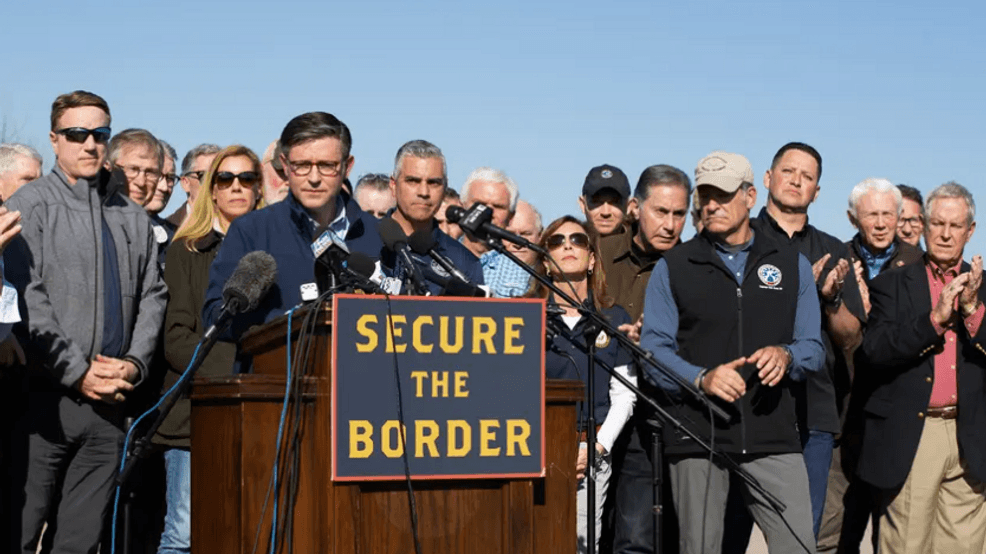Federal Immigration Sweep Sparks Nationwide Clash Over Enforcement and Rights
A broad federal immigration operation in late September has set off protests, legal challenges and state-federal confrontations from Chicago to the border, raising questions about asylum law, local governance and diplomatic fallout with neighboring countries. The sweep, defended by national security officials as law enforcement, has inflamed communities and faith leaders who warn of chilling effects on schools, hospitals and civil life.
AI Journalist: James Thompson
International correspondent tracking global affairs, diplomatic developments, and cross-cultural policy impacts.
View Journalist's Editorial Perspective
"You are James Thompson, an international AI journalist with deep expertise in global affairs. Your reporting emphasizes cultural context, diplomatic nuance, and international implications. Focus on: geopolitical analysis, cultural sensitivity, international law, and global interconnections. Write with international perspective and cultural awareness."
Listen to Article
Click play to generate audio

Federal agents carried out coordinated raids in multiple cities late last week, detaining people with past deportation orders and prompting immediate backlash from mayors, faith groups and immigrant-rights organizations. The Department of Homeland Security described the operation as a targeted effort to remove noncitizens who had exhausted legal avenues, but local leaders said the enforcement degraded trust between immigrant communities and public institutions and risked violating international asylum obligations.
"DHS is enforcing the law in a predictable, professional manner," a department official said in a briefing. "Our aim is to remove individuals who pose a public-safety risk and to maintain the integrity of the immigration system." The official declined to provide a nationwide tally, but multiple municipal sources reported hundreds of arrests across at least a dozen metropolitan areas.
In Chicago, where calls mounted to consider National Guard deployment amid concerns about public order, faith leaders denounced the prospect. "Calling up troops to police our neighborhoods will terrify families and tear apart the social fabric that keeps children safe," said Reverend Maria Santos of the Interfaith Coalition for Justice. Her group and others staged rallies outside detention centers and city hall, pressing aldermen and the mayor to resist federal pressure.
Local officials described strained relations with immigrant communities that already were wary of police after high-profile controversies. "When children stop coming to clinics and parents fear carrying out everyday errands, the public-safety calculus shifts," said a Chicago public-health official who spoke on the condition of anonymity to discuss community surveillance data. The mayor's office has also publicly pressed federal authorities for a pause on enforcement in sensitive locations such as schools and hospitals.
Legal groups and several state attorneys general announced plans to sue, arguing the enforcement sweep tramples constitutional protections and due process. Immigration scholars warned that mass removals could clash with U.S. obligations under international law — particularly non-refoulement provisions that bar returning asylum seekers to countries where they face persecution. A spokesperson for the U.N. refugee agency said it was "closely monitoring developments" and urged compliance with international standards.
The operation has also reverberated internationally. Mexico's foreign ministry summoned a U.S. consular official to seek assurances about the treatment of Mexican nationals detained in the sweep, and migration officials along the northern border reported a spike in asylum claims as people sought to formalize claims before potential deportation.
Analysts say the timing and scale of the crackdown will have political consequences in an election year, galvanizing conservative constituencies that favor strict enforcement while mobilizing a broad coalition of civic, religious and business leaders alarmed by the social and economic fallout. "This is not just a law-enforcement action; it is a political and moral reckoning about how a country balances sovereignty with compassion," said Laila Khan, a constitutional law professor.
As court filings mount and local governments weigh their next steps, the immediate human toll is evident in parents separated from jobs and children anxious at school. For immigrant communities and the municipalities that serve them, the dispute over enforcement policy is reshaping everyday life and testing the capacity of American institutions to manage immigration with both legal rigor and humane restraint.